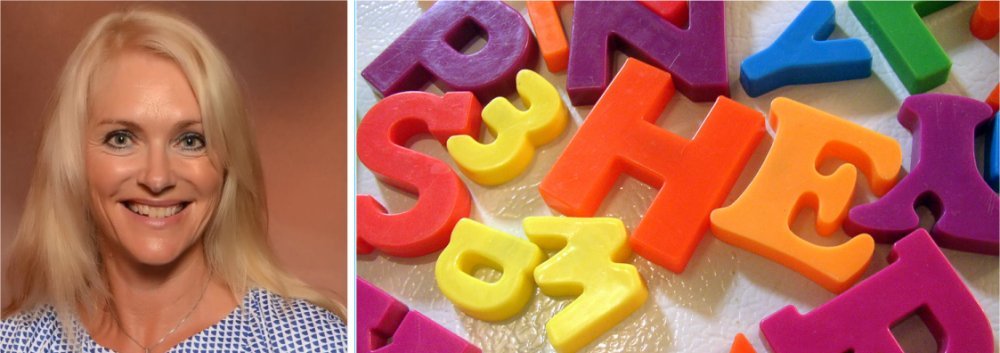General Articles
Well-being for the Mind Part 1
Giving your Brain a Workout
I’m really excited to be writing this particular article this month as I touch upon a subject that is not only my passion, but my profession.

Keeping your brain fit and healthy is as important as exercising your body if you want to live a long and active life. This month I’m going to look at the very best way to keep yourself intellectually at your peak and regenerate your brain cells to boot and it’s called ….learning a new language. All recent scientific research and studies point their arrow in the same direction, there is no better way to keep your brain young and sharp than taking up the study of a new lingo and here is why:
Swedish scientists using brain scans to monitor what happens when someone learns a second language discovered that …wait for it….learning a foreign language can increase the size of your brain. Yes, yes, yes, that explains why my old hats don’t fit anymore. Ok maybe not, but what is important is that tools like magnetic resonance imaging (MRI) and electrophysiology, can now tell us what is happening in our brains when we hear, understand and produce second languages. In the Swedish studies, MRI scans showed that specific parts of the brains of the language students developed in size whereas the brain structures of the control group remained unchanged.
This recent brain-based research is great news. We know that people who speak more than one language fluently have better memories and are more cognitively creative and mentally flexible than monolinguals. Alzheimer’s disease and the onset of dementia are diagnosed later for bilinguals than for monolinguals according to studies carried out in Canada, meaning that learning a second language can help us to stay cognitively healthy well into our twilight years.
Even better and contrary to popular belief, is that to reap the benefits you don’t even have to learn your second language as a child. Edinburgh University researchers remind us that “millions of people across the world acquire their second language later in life: in school, university, or work, or through migration or marriage.” This shows that it’s never too late to start and something I’ve been telling my clients for years.
Dr. Lawrence Katz an internationally recognized neurobiologist and pioneer in neuron regeneration research explains that mental decline is not usually from loss of brain cells as much as it is from loss of communication between brain cells. By doing the right kind of mental exercise, we can grow new dendrite connections. Just as physical workouts change the shape of your body, a language workout can change the shape of your mind.
In 2008, a groundbreaking study (published by PNAS) proved for the first time that overall intelligence could be improved.
Several important findings resulted from this study: they showed that intelligence is fluid and can be increased with the right stimulus and that the gains are dependent on the amount of training, i.e. the more you train, the more you gain. Just like in sport. They also showed that anyone can increase their cognitive abilities, no matter their starting point and that cognitive enhancement made in one area could improve totally unrelated skills. So that puts a stop to the myth that if your child has to cope with speaking more than one language at home, then this will slow them down at school. I’ve been telling parents the contrary for years and now research backs me up – hooray!
Learning a new language has physical health benefits as well and pluses such as enhanced conversational abilities, a greater mastery of languages in general (including one’s native language), improved study skills, greater discipline, and heightened concentration and focus. A study conducted by Dr. Thomas Bak, a lecturer at Edinburgh's School of Philosophy, Psychology, and Language Sciences, backs up the above claim. He found that in tests those who became bilingual performed better than expected (the baseline score used the initial tests from childhood to predict performance—if they performed poorly at 11, they would likely perform poorly at 73). The results showed that learning a new language in adulthood still yields results, meaning there’s never a reason to feel too old to reap the cognitive benefits of learning a new language
According to Johan Mårtensson, an investigator in psychology at Lund University, Sweden: "Even if we cannot compare three months of intensive language study with a lifetime of being bilingual, there is a lot to suggest that learning languages is a good way to keep the brain in shape,"
"Just having the basics of those linguistic connections can delay dementia."
Another little gem is that, Dr. Thomas Bak, found that level of education and intelligence mattered less than learning a second language when it came to delaying cognitive decline.
So now we know that neurons continue to be born throughout our lives. And that learning a new language will grow more of them and keep them alive for longer. But your have to water and care for them like plants in your garden as many of them, sadly, also die shortly after birth. The factor that appears to matter most to their longevity is whether or not you have actually done any ‘effortful learning’ in the meantime. And ‘effortful learning’ includes learning a new language.
Effortful learning means 1) spacing the learning out over long periods of time and 2) testing yourself. If you space the learning out, as opposed to cramming all the material into your head during one lesson, then the material has the opportunity to consolidate. This is why one day you are convinced that nothing has gone in and yet three days later you can remember and produce a new phrase effortlessly and you amaze yourself.
Spaced learning also allows you to test yourself. By testing yourself you create pathways for retrieving the information in the future, which consistently leads to better learning in the long run. Many people don’t like tests because they don’t like to see their mistakes. Yet there is good evidence to suggest that getting something wrong is just as good as getting it right with regards to your learning, so don't worry about the errors, the tougher you make things the faster you will learn and your new neurons will stay alive for longer--regardless of your age. So the more you struggle the better it is. Yippee, you can make mistakes galore and then correct them, your brain loves it.
This is great news for anyone who is multi-lingual, but, really, it is positive news for everyone. To benefit from the dementia-delaying effects of learning a second language you do not need to be fluent; it just matters that you TRY to learn the language, as Bak says, “Just having the basics of those linguistic connections can delay dementia.”
Of course I’m delighted to share all this with you as I’ve been saying as much for years and doubly pleased that my clients are not only learning a new language skill but getting a brain workout at the same time. I’m likely to be interacting with them for longer as they’ll all be fit and smart enough to learn yet another new language as soon as they have come to grips with the first.
On a personal note I do practise what I preach and take huge doses of my own medicine if only to prove the point 
I’m currently learning and practising language number 6 (Russian) and I can feel those neural pathways growing daily (although there is the occasional day when I upload a little too much and my head starts spinning) and I remind myself that we need spacing. I love the feeling that the learning sparks and how it revs up my mind and makes me more competent and creative for everything else that I am tackling. By the way, you really do need a proper tutor if you’re going to truly learn and make progress. Apps and other methods are great as back-ups but take it from one who knows (I walk my own talk as I have a Russian tutor) real communication involves interacting with real people. If you want extra practice while you’re sitting at the airport or in the Dr’s waiting room, then I strongly recommend using DUOLINGO and MEMRISE both of which I and my clients use. They are really helpful but are optional extras and not the basis for solid learning. They don’t and can’t replace a tutor. We should never, never stop learning; it gives us that spark that keeps us ahead and gives us the edge. For your brain it really is a no-brainer!
Here endeth the lesson – until next time.
До Ñледующего меÑÑца! (Until next month!)
~
ELOQUENCE
LANGUAGES & TRANSLATIONS FOR INTERNATIONAL COMMUNICATION
2 bd du Jardin Exotique
98000 Monaco
Mobile: +33640610487
email: judy.churchill@eloquencelanguagesandtranslations.com
www.eloquencelanguagesandtranslations.com



